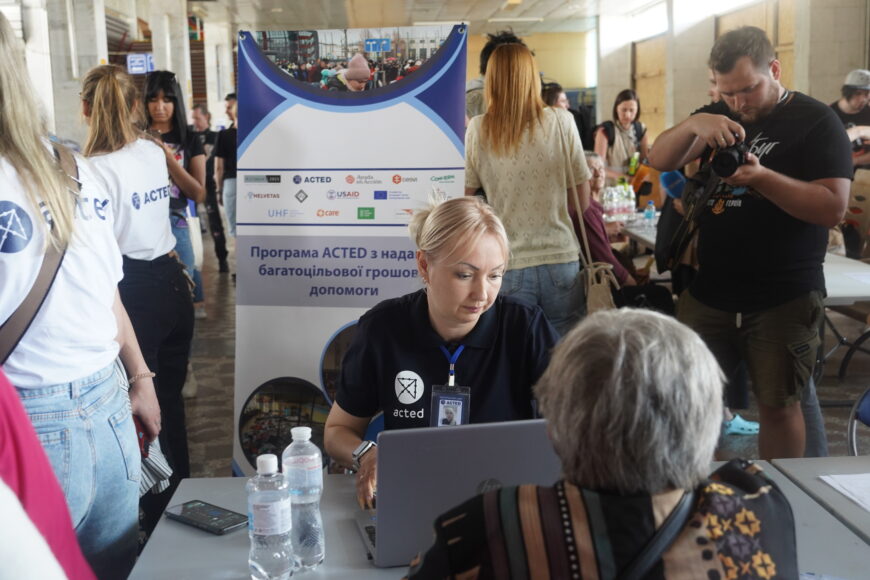Following the destruction of the Kakhovka dam in southeastern Ukraine on June 6th, water from the reservoir has flowed uncontrollably downstream, fully or partially flooding at least 37 settlements on both sides of the river. Affected settlements are now cut off from drinking water, electricity cuts, and blocked roads limiting access in or out. Acted’s teams are mobilised since day 1 to help flood-affected persons and local authorities.
What are and could be the impacts of the catastrophe?
The destruction of the dam could bear hard consequences on the safety of those living near flood waters. The reservoir is expected to fully drain in approximately four days, affecting between 16,000 and 20,000 local residents in up to 80 settlements. In addition to flooding downstream communities and reducing water availability for communities along the reservoir itself, this cascading disaster is likely to have knock-on effects that compromise underground water systems, displace mines, erode embankments and levees, release sewage and harmful chemicals from industrial and agricultural sites, and create conditions for water-borne diseases to flourish. These factors can lead to displacement, disrupt livelihoods, and reduce the availability of social services among the already vulnerable and conflict-affected communities that live under frequent shelling and missile strikes due to the ongoing war in Ukraine.
Acted's response

Acted has been providing humanitarian assistance in Ukraine since 2015. Since Russia’s invasion of Ukraine in February 2022, Acted has helped more than 1.3 million people in the country.
From the first day of Kakhovka dam damage on June 6th, 2023, Acted’s teams have been present at the disaster to address the immediate and medium term needs of affected communities. Activities implemented include:
- The provision of emergency cash assistance, including for evacuees and non-displaced families with flooded houses
- The provision of drinking water, water tanks, and hygiene kits, including for institutions, families, and people with special needs
- The provision of food kits and hot meals
- The provision of fuel to households
- Provision of civil protection equipment to first responders
As the flood waters recede, Acted is engaged with local authorities and emergency responders to support recovery and rehabilitation interventions, including future risk mitigation and emergency response planning.